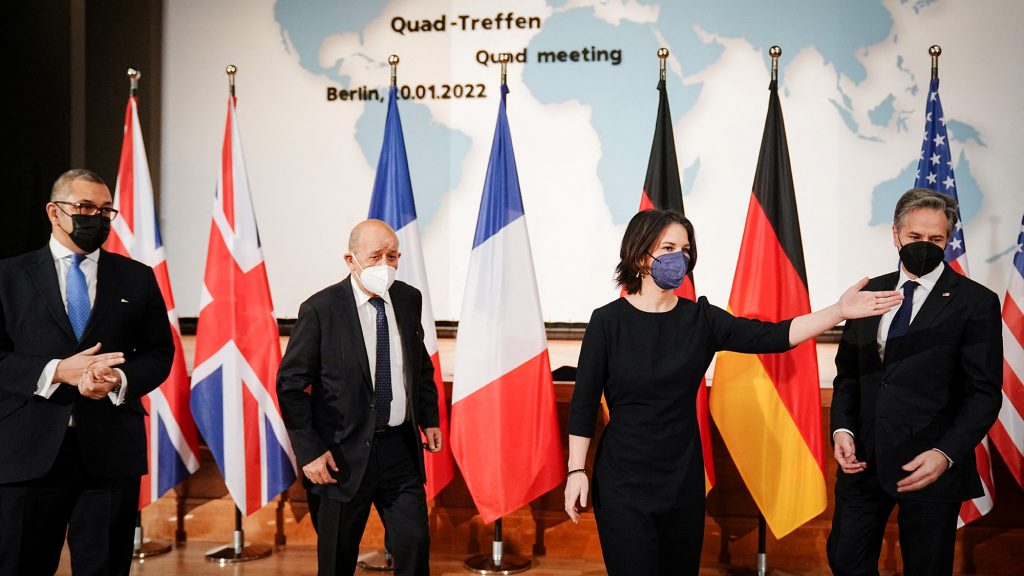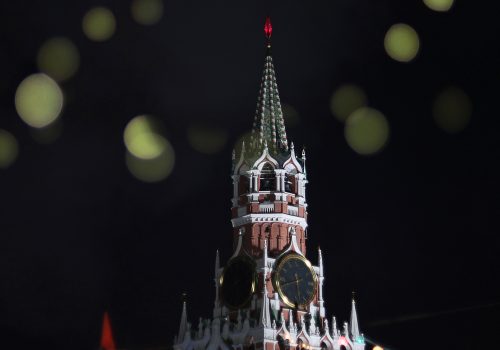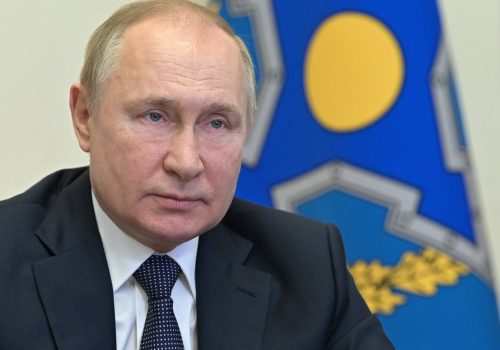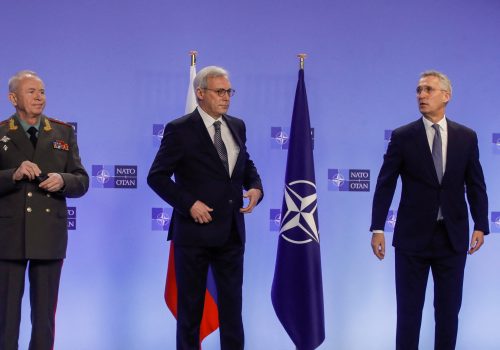“There will be no peace in Europe if the States are reconstituted on the basis of national sovereignty.” This warning by Jean Monnet—the crux of his seminal reflection from Algiers, Algeria in the summer of 1943—sums up the crisis Europe is currently experiencing nearly eighty years later.
Europe today, as in the aforementioned period, does not have a decisive voice in the great geopolitical issues that will define its future.
Let’s go back to the Algiers of 1943. In June, the French Committee of National Liberation was formed, with Charles de Gaulle as co-chairman and Jean Monnet among the five original members. That summer, the Red Army of the Soviet Union on the Eastern front and the Allied landing in Sicily marked a turning point in relation to Nazi Germany’s Wehrmacht. The divide was drawn between the supremacy of the Soviet Union (along with the United States) and the weakness of Europe and of the United Kingdom.
Importantly, at that time, and in line with a deep-rooted, historical tradition, the United Kingdom was considered European only in a broad, fluctuating sense, which also may include Russia. And so, the disputed delineation of Europe’s frontiers (which still hangs over our heads and has paralyzed, to a great extent, coordinated action in the twenty-first century) was already clear in these first designs of the post-war European order. Present, too, was the dilemma (as artificial today as it was then) between Atlanticist affiliation—based on fear of the Soviet protectorate—and Continentalist allegiance—stemming from reticence to the Anglo-American (now, simply American) hegemony.
The idea of building Europe beyond sovereignties (a need as conspicuous today as it proved to be in Yalta) is part of the reflection of the different groups of resistance (Algiers, but Ventotene’s Spinelli as well). The voice of de Gaulle’s Free France, bypassing the Vichy government, took the lead in this quasi-clandestine debate, as the powers that be engaged in dialogue exclusively among themselves. We are now living a painfully similar situation: Russia only recognizes the United States as a direct interlocutor.
In the objectively unfavorable context in 1943, Monnet laid the groundwork for the rebirth of Europe. And his idea, which became history, confronts us today.
It is true that we are not at war; but Monnet’s intellectual scaffolding presumes a state of peace. And although Europe’s challenge is not “rebuilding,” we Europeans have to accept that our survival as a society—one that can determine its future and defend its principles and values, liberal democracy, the rule of law, and multilateralism—depends just as much on collating national sovereignties as it does on a balanced, proactive transatlantic relationship.
It is said that Monnet, in those days of 1943 (the quote is part of a set of meditations dated August 5) paced back and forth, studying a wall map of the “great” Europe, pondering the nature of the structure that could undo the Gordian Knot of “the German question” (with Otto von Bismarck’s unification in 1871, the weight of Germany—stemming from its wealth and population—became a permanent factor of instability). Monnet’s deliberations revolved around how to create a framework that both integrated and disciplined Germany: a “European entity” with an economic and political vocation that he called a “federation.” The equivalent of addressing “the German question” in our days is the search for a single European voice in the three areas which define the twenty-first century: engagement with China, the health of the transatlantic bond, and Russian revisionism.
Let’s start with Beijing, a paradigmatic case of the trademark ambiguity that afflicts us in Europe: Europe seeks, above all, to be “understanding” (is China a “partner,” a “competitor,” or a “rival”?). This ambiguity transcends semantics—it is pure vacillation. Although our discrepancies with China are basic, rooted in disparate ways of seeing the world—the primacy of freedom versus security, citizen versus collective subject—the dispersion of our national interests and policies defies understanding.
Nor are we clear about what we want with the United States. On one side, we have French President Emmanuel Macron with his “we will see” take on US President Joe Biden; on the other, the countries of Eastern Europe that cling to NATO (and, therefore, to the United States) as guarantor of their defense and territorial integrity. And yes, the transatlantic alliance is, as in 1943, of vital importance for Europe. But Europe needs to be clear: The United States does not have the same relevance or the same interests as it did eighty years ago.
Today, it is a fractured society, whose foreign policy “for the middle class” is impregnated with confrontation (because, unlike us Europeans, the United States is clear about what to call its relationship with China). Although in an extreme situation the transatlantic bond would withstand, Europe is low on the totem pole, as was proven by the unfortunate development of the AUKUS storyline.
The urgency, the drama, and the potential catharsis come from Europe’s eastern neighbor. There are many Europeans who, out of ignorance, indolence, or even conviction play into the Kremlin mantra of Russia as a historical victim of hostility—from the outside world in general, and from the West in particular. After a period of weakness caused by the dismantling of the Soviet Union, in this view, Moscow has managed to regain great-power status without any help, despite the incomprehension—if not sabotage—of Europe and the United States. Russian President Vladimir Putin triumphantly leads the patriotic feat of fighting off alleged aggression and threats to the country’s security on its western border, which the United States is accused of having plotted in the aftermath of the “greatest geopolitical catastrophe of the century” (the dissolution of the Soviet Union), in the words of the president. This is the philosophy behind his article published last July, which unexpectedly crystallized in Russia’s December 17 ultimatum.
Europe is once again absent from the key conversation surrounding a process that will undoubtedly impact its collective future. Putin has reneged on the Normandy Format and is only addressing the United States. NATO today, after years of European complacency and under-funding, is seen as little more than a multilateralist front for Washington. As for the Organization for Security and Cooperation in Europe meeting, it is a sad fig leaf to (poorly) hide the shame of Europe’s belittlement. The US Deputy Secretary of State’s meeting with the EU High Representative was a consolatory (if appreciated) formal gesture.
Europeans don’t count—not through our institutions and not even through France and Germany, as in the Minsk Accords. Europeans cannot accept the situation. Europe has to participate as the European Union, coordinating the member states, particularly the large ones, not bundled up in the cloak of US power or waiting in the wings.
Europe has to react. Our reality is objectively no worse than the one facing Monnet in August 1943. But we have much to learn from the founding fathers of European integration: ambition of vision, strength of conviction, clarity of exposition, and self-confidence.
A version of this article originally appeared in El Mundo. It has been translated from Spanish by the staff of Palacio y Asociados and is reprinted here with the author’s and publisher’s permission.
Ana Palacio is a former minister of foreign affairs of Spain and former senior vice president and general counsel of the World Bank Group. She is also a visiting professor at the Edmund E. Walsh School of Foreign Service at Georgetown University and a member of the Atlantic Council’s Board of Directors.
Further reading
Fri, Jan 14, 2022
Russia’s other European invasion
New Atlanticist By
From London to Athens and far beyond, bankers, lawyers, lobbyists, and former officials have all been snapped up by the Kremlin and its allies.
Thu, Jan 13, 2022
FAST THINKING: A big week of diplomacy with Russia is over. What’s Putin’s next move?
Fast Thinking By
Is war in Europe more likely after this week's diplomatic flurry? Our experts weigh in on what to expect next.
Mon, Jan 17, 2022
If the West sticks together, it can find a way forward with Russia
New Atlanticist By Daniel Fried
The US and Europe need to resist the temptation to respond to threats with concessions, and maintain a willingness to discuss European security in a way that benefits all, not just Moscow.
Image: British Minister of State for Middle East, North Africa and North America James Cleverly, French Foreign Minister Jean-Yves Le Drian, German Foreign Minister Annalena Baerbock, and US Secretary of State Antony Blinken move to their seats for a meeting at the Ministry of Foreign Affairs in Berlin, Germany on January 20, 2022. Photo via Kay Nietfeld/Pool via REUTERS.



